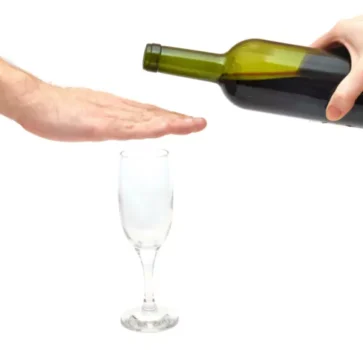
The gravity of the situation becomes even more pronounced when we consider the frequency with which these tragic events occur. It is a chilling fact that every day, about 37 people in the United States lose their lives in drunk-driving crashes. This equates to one precious life lost every 39 minutes, a relentless and sobering reminder of the urgent need for change. A driver’s unlawful refusal to take a blood, breath, or urine test can also result in a license suspension.

Jail Time for First-Offense DUI Convictions
In Texas you can face other penalties for driving under the influence or refusing a chemical test which are unrelated and in addition to criminal penalties. These penalties are known as Administrative License Revocation (ALR) and are handled by the Department of Public Safety. These are civil penalties which will result in driver’s license suspension for failing or refusing a chemical test. These penalties are in addition to of the outcome of criminal court proceedings. Many people are surprised to learn a first-time DWI offense can result in fines and legal fees of up to $10,000.
The Legal Process: From DUI Arrest to Conviction
Alcohol use disorder (AUD), or alcohol addiction or alcoholism, is a chronic relapsing brain disease. It develops when you misuse alcohol despite knowing its adverse effects. The primary enzyme involved in alcohol metabolism is the alcohol dehydrogenase (ADH). While the liver breaks down alcohol, it also affects essential neurotransmitters in the brain. Heavy alcohol use negatively impacts reasoning, memory, and overall brain function.
- You may also experience a decline in your self-control and reasoning at this level of intoxication.
- Getting behind the wheel after drinking alcohol is dangerous and can even be deadly.
- This means that if a person’s BAC is at or above this level, they are considered legally drunk and can be charged with a DUI offense.
License Suspension
- And that’s if no one is killed or seriously injured by your drunk driving accident.
- These can range from minor bruises to life-threatening conditions such as traumatic brain injuries, spinal cord injuries, and multiple fractures.
- Every year, more than 13,000 individuals are killed in accidents involving alcohol-impaired drivers.
- Furthermore, schools and colleges routinely reject scholarship students with previous DUI offenses.
- If probable cause is established, the drunk driver will be arrested and taken to a police station or medical facility for further testing.
- Of course, these expenses don’t include the potential in property damage, possible job loss, stress on relationships, injury, and loss of freedom.
- The Super Lawyers patented selection process is peer influenced and research driven, selecting the top 5% of attorneys to the Super Lawyers lists each year.
However, some states have a lifetime lookback, meaning all DUI convictions, no matter how old, are counted. The DUI (and implied consent) laws of some states explicitly limit their application only to public highways. In these states, the term “public highways” generally includes interstates and actual highways, but also any public road such as residential and city streets. Remember, many accidents occur when a driver has a BAC below the legal limit.

Understanding these far-reaching impacts underscores the importance of efforts to end drunk driving. It’s important to note that under “implied consent” laws, drivers are generally required to submit to chemical testing if arrested for suspicion of DUI. Refusing these tests can result in automatic driver’s license suspension and other penalties.

Effective Measures Against Drunk Driving

The sudden loss of a loved one due to someone’s irresponsible decision to drink and drive leaves a void that can never be consequences of driving drunk include: filled. Survivors of drunk driving accidents often suffer from post-traumatic stress disorder, depression, anxiety, and survivor’s guilt. Drunk driving is when a person operates a vehicle while under the influence of alcohol.
“However, they do set out to drink when they know they are going to drive, and they do set out to drive when they know they are going to drink” (4). Ultimately, impaired driving comes down to decision-making, both about drinking and about driving, marijuana addiction according to the research. Failure to adhere to these conditions may result in the revocation of probation and the imposition of additional penalties, including possible jail time.
- First responders and medical professionals tirelessly work to mitigate the consequences, diverting precious resources away from other critical needs.
- Drunk driving is a one-way ticket to a dead-end job, a low-rent neighborhood and unfulfilled ambitions.
- Conditions of probation might include random sobriety testing, attendance at a victim impact panel, or some sort of treatment program.
- A crucial factor that influences the severity of the punishment for a DUI offense is whether the offender was previously convicted of the same crime.
- A skilled attorney will examine the evidence against you, identifying any weaknesses or inconsistencies that can be leveraged in your favor.
According to the National Highway Traffic Safety Administration, 11,654 people were killed in drunk driving accidents with alcohol-impaired drivers in 2020. It is also estimated around 1.5 million people are arrested each year for drunk driving. DUI penalties are daunting and can affect a person’s career opportunities and personal life. However, most states have programs available—such as diversions and first-offender programs—that can lessen the impact of a DUI arrest. And, in some cases, a driver who’s charged with driving under the influence might have viable legal defenses. To ensure your rights are protected, it’s always a good idea to talk with a qualified DUI attorney about your situation.
The consequences of drinking and driving
Alcohol impairs critical driving functions such as reaction time, coordination, and judgment. This impairment increases the likelihood of accidents, including collisions with other vehicles, pedestrians, and stationary objects. Over the past decade, there has been a noticeable decline in drunk driving incidents in many regions, thanks to stricter laws and increased public awareness. However, the fight against drunk driving remains ongoing as new challenges emerge.
